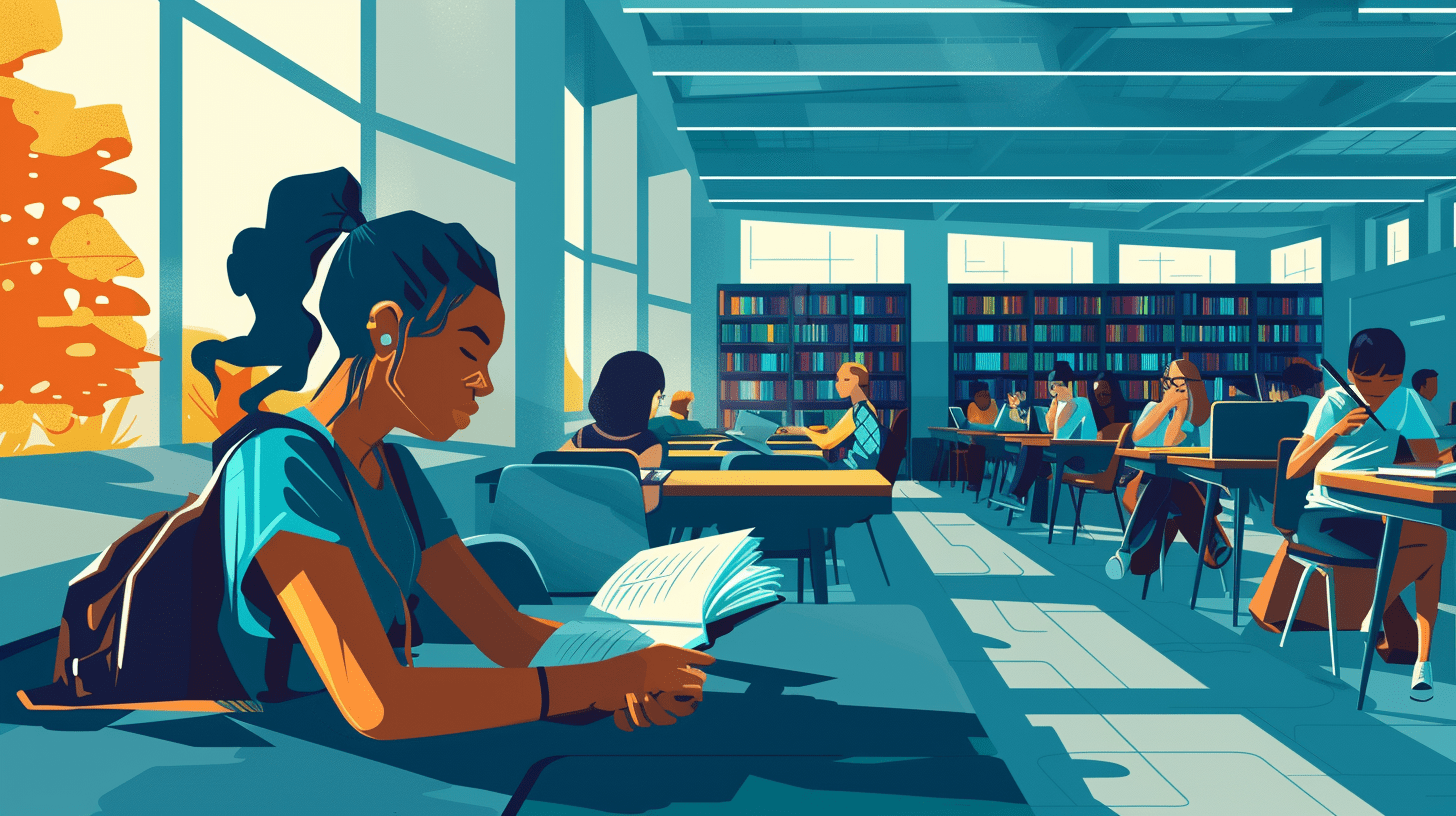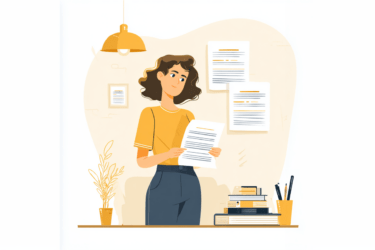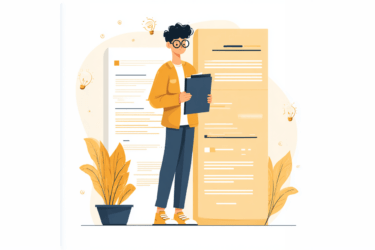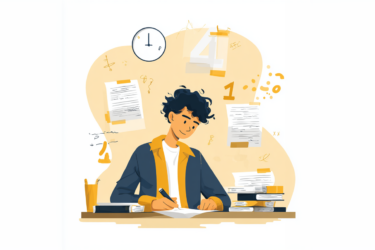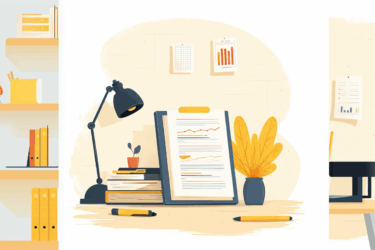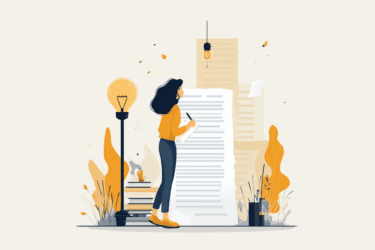“Plagiarism is a serious offense that comes with consequences,” states any plagiarism-related article or educational institution’s honor code. But what exactly does it mean, and what to expect if one is caught for plagiarism, especially not for the first time?
Why plagiarism is punished so seriously
A bit of a spoiler here: plagiarism can entail detention and even expulsion, especially if committed repeatedly. Why do teachers need a plagiarism tool to check for originality, and what makes copying such a big problem?
- Plagiarism violates authorship rights. When one copies from somebody without attribution, they literally steal from the author.
- Plagiarism infringes the institution’s honor code. Copying instead of writing authentically is blatant cheating, which is unacceptable in any college.
- Plagiarism ruins academic integrity. Cheating causes inequality, is unfair, and affects the one who copies in the first turn, as gaining knowledge is impossible without honest efforts.
- Plagiarism threatens reputation. By publishing the plagiarized work and approving the graduates who have cheated in their papers, the institution puts at risk its name.
What happens if one plagiarizes in college
As we have seen, plagiarism is serious enough to cause severe repercussions even if committed for the first time. If one gets caught copying again, the consequences will for sure be even more drastic. What exactly happens depends on the rules of the particular professor, the college’s guidelines, and the amount of plagiarism detected. The possible scenarios are:
- failing grade with no permission for a re-do;
- reduction of the final grade for the entire course regardless of the other marks;
- automatic fail for the course;
- expulsion from the course;
- report to the dean’s office for further disciplinary action;
- being put on academic probation;
- suspension from the college;
- permanent expulsion from the college.
In the least severe penalty cases, when the plagiarizer gets an “F” for the assignment, the instructors may also oblige the student to attend writing ethics workshops or similar academic integrity-related courses.
In any case, plagiarism is a type of violation that usually goes to one’s transcript, and massively impacts the reputation, in many cases, jeopardizing the further academic career.
How to avoid plagiarism
We assume all that sounds impressive enough so that no one wants to take a risk and plagiarize the assignment, especially for the second time. Why then so many plagiarism accusations occur, and are they always fair? The thing is, apart from deliberate cheating, there are cases of accidental plagiarism when students copy with no intention to do so.
How can one avoid plagiarism-related problems?
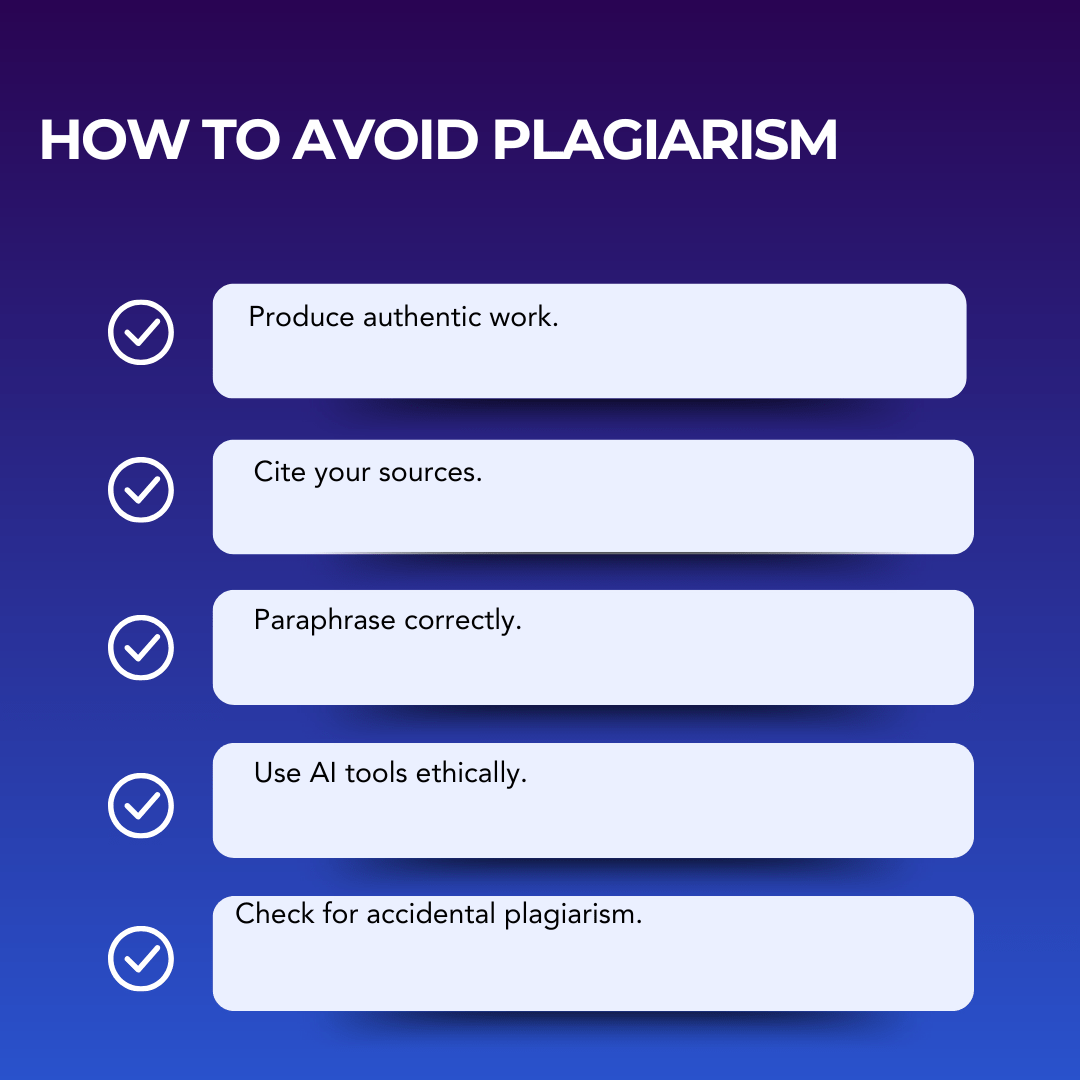
- Produce authentic work. Reflect on the ideas, and contribute to the writing instead of copying someone’s thoughts. Even if based on the sources, the paper should contain original concepts that make the writing your own.
- Cite your sources. Proper quotation and attribution are the pillars of the no-plagiarism policy. Use a citation generator to make referencing fast and easy!
- Paraphrase correctly. No one expects the writer to invent the new words. However, there is a huge difference between basic rewriting with synonymization and reflecting on the material to produce an authentic piece.
- Use AI tools ethically and in moderation. The information the chatbots provide may be not accurate and often is not original. Always double-check the data, never use AI to generate the assignment text, and always cite the chatbot when you implement the technology.
- Check for accidental plagiarism. Sometimes we repeat someone else’s thoughts by coincidence. Use a plagiarism detector to stay on the safe side and eliminate potential matches before submitting the assignment.
How to cite sources
Citation is an indication that your work is based on other sources. The paper may contain an exact quote, use some data, or be inspired by someone’s research – no matter how small your appropriation is, it is crucial to mention the original author.
It is essential to understand that crediting the source does not make your work less valuable. On the contrary, citation shows your decency and professionalism, demonstrates the depth of research, and proves the credibility of your writing.
Inaccurate citation is considered one of the forms of plagiarism. That is why it is vital to learn how to cite the sources appropriately,
What to include in the citation
Citing the source, one should include:
- the title and the author;
- the page containing the material you are referring to;
- the date your copy was released;
- the information about the publisher: name and location.
The sources of information can be diverse. While many perceive citation only in the context of books, journals, or magazines, one can also refer to webpages, TV programs, films, reports, and even patents or bills.
Citation styles
The citation formatting depends on the type of work and the institution’s recommendations. So, one should consider their professor’s or supervisor’s requirements.
In general, there are four main citation styles:
- APA (American Psychological Association) – for papers in sciences and education;
- MLA (Modern Language Association) – for liberal arts and humanities at the undergraduate level;
- Chicago – for business, history, fine arts, and humanities at the graduate level;
- Harvard (also called author/date system) – for humanities, natural, and social studies.
All styles require providing the same information, and the difference is in formatting. A citation generator makes referencing easier. You insert the information and choose the style needed, and the tool provides a properly formatted citation ready to be included in your work.
In-text and bibliography format citations
Regardless of the citation style, any paper should contain in-text references, and the works cited list after the main part of the writing.
- In-text citations are a short form of attribution used immediately after mentioning the idea we want to credit.
- The full citation is provided after the main part of the text in the list of references.
The citation list after the main part of the paper may have different names: List of References in APA and Harvard, Works Cited in MLA, and Bibliography in Chicago style.
Some also note that the List of References provides data on all the sources cited in the work, while the Bibliography should also include everything one used to support their writing, like the background reading and sources of inspiration.
Why should one cite the sources?
Why should one pay attention to the referencing, and why this policy is so strict? The short answer is – because it’s the right thing to do.
- Crediting the authors is respectful and honest – without doing so, you pass their work for your own, which is plagiarism.
- Providing citations proves that your work is based on some research and makes it more credible.
- Citation also helps to distinguish your original ideas from the borrowed information, highlighting your contribution.
- References provide the reader an opportunity to study the source of your knowledge.
Citing has gained even more significance with the development of AI text generators that can be handy but also happen to be inaccurate and even plagiarise. So, proper referencing shows the scale of your research and the reliability of your sources, hence the validity of your paper.
PlagiarismCheck.org stands by your side in striving for originality and writing skills improvement! Try our plagiarism detector and Chat GPT checker to ensure good grades and excellent quality of your papers. Join us for free now.
